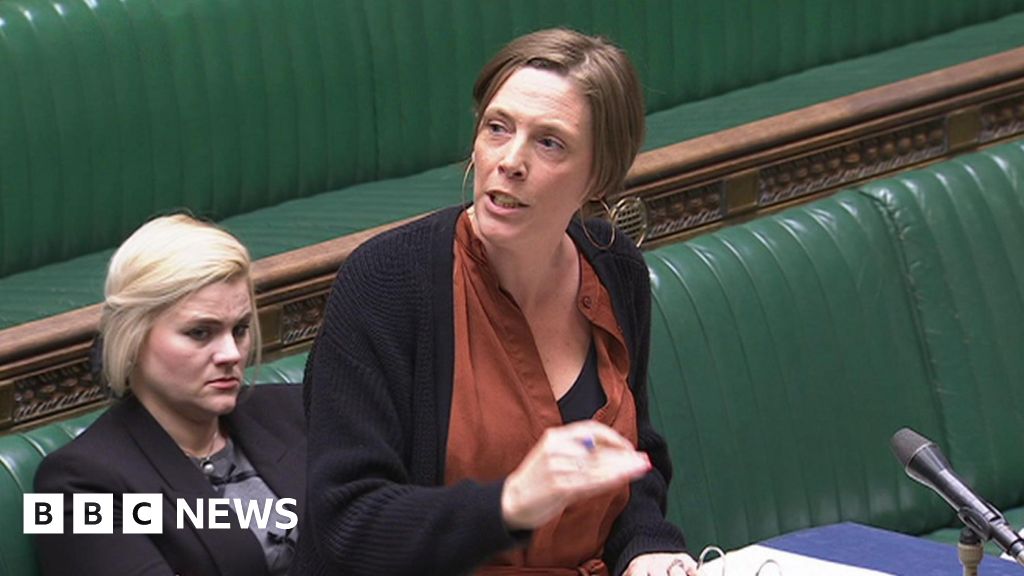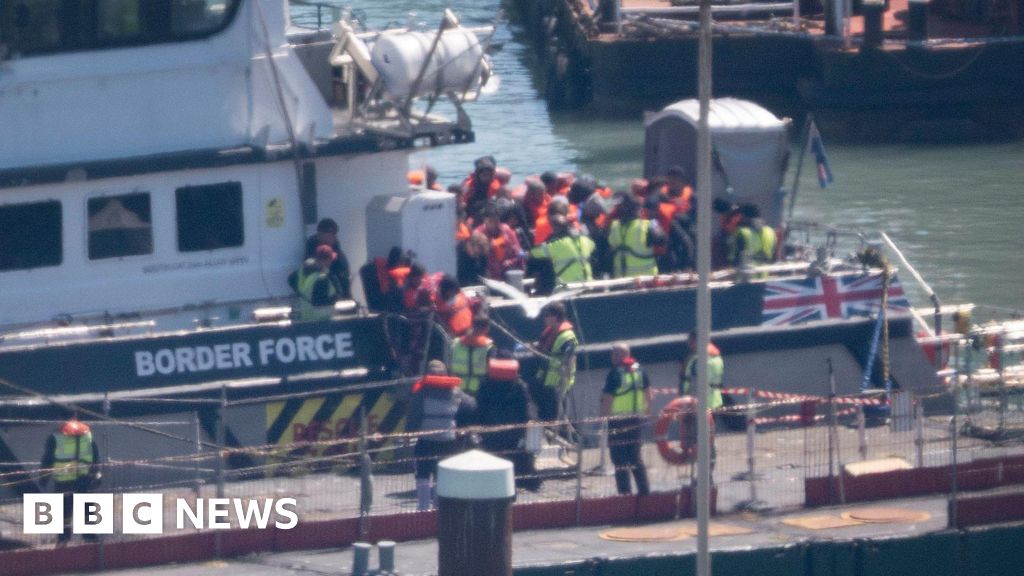ARTICLE AD BOX
By John Campbell
BBC News NI Economics & Business Editor
Image source, Getty Images
Image caption,Tourism Ireland said tour operators were "incredulous" when the plan was explained to them
Tourism leaders have warned that UK government proposals to require international travellers to apply for a permit to cross the Irish border will damage the industry.
They were announced last year as part of the Nationality and Borders Bill.
It would require non-British and non-Irish EU citizens to apply for pre-travel clearance.
The NI Affairs Committee was told most international visitors to Northern Ireland arrive via Dublin airport.
The new Electronic Travel Authorisation (ETA) will be required for those international tourists who want to travel onwards to Northern Ireland, even if it is just for a day trip.
The system would be similar to the declaration that international passengers have to fill in before travelling to the United States or Canada.
Tourism Ireland said tour operators were "incredulous" when the plan was explained to them.
John McGrillen, chief executive of Tourism NI, said one of the major concerns was that travel agents and tour operators would cut Northern Ireland from their itineraries.
"If ambiguity exists, if explanation is required it will make it much easier for that agent to say, 'I don't need to be bothered with this hassle, it's much easier for me to sell a trip to Cork or Galway or Kerry'," he said.
Image source, Dublin Airport
Image caption,The industry leaders told MPs on the NI Affairs Committee that a majority of international travellers who come to NI arrive via Dublin airport
He added that it had "taken a long time" to build up that tour business in Northern Ireland.
"If you don't make it simple and easily understood there's the potential for that business to be lost."
Joanne Stuart from the Northern Ireland Tourism Alliance (NITA) told MPs there had been no consultation on the issue.
She said there were also concerns about how it would impact cross-border workers like coach drivers.
"A not-insignificant amount of these are non-Irish EU nationals, and under these proposals they too would need a visa for every crossing. How can we justify this?
"Given the skills shortage in this sector we need to make it more attractive, not put those already working here at risk."
The government said the move was necessary to prevent any abuse of the Common Travel Area (CTA).
'Catastrophic'
Adrian O'Hare, secretary of Narrow Water Bridge Community Network, said: "We never thought in all the years that we've been campaigning for the bridge that we'd be confronted with such an impediment.
"This presents a real difficulty for us, because anything that's put in the way could lead to a delisting of Northern Ireland from the tourist offering, particularly in Europe."
Adrian O'Hare said the move could be catastrophic for tourism along the County Down border
He said the bridge, which is moving to procurement phase, is "unique possibly throughout the European Union in the sense that it's probably the only bridge to go from EU to non-EU and any over-emphasis on placing visa impediments on people - it will be actually catastrophic".
Artist Jacqueline Rooney, who is based in Rostrevor, County Down, said she feared the measure "would fundamentally have a detrimental effect to my business and all of the local businesses".
"As a border town here we do heavily rely on those lovely visitors coming across the border," she said.
Jacqueline Rooney said she feared the permit would put many visitors off coming to Rostrevor
"You just don't want that extra hassle. If something like that is causing you concern, or you're not sure about it, you just won't bother.
"We're all so passionate about where we are and it's so important for us to be able to allow people to easily come in and fall in love with this village that we call home."
The Common Travel Area gives UK and Irish citizens certain reciprocal rights in each others' countries and has continued since the UK left the EU.
The government has also promised it will not mean enforcement at the border.
'Onerous' requirement.
Immigration Minister Kevin Foster said it would not be an "onerous" requirement.
He indicated to the MPs it would likely cost about £10, would be valid for more than a year and would cover multiple trips.
He also suggested it would begin operating in 2025.
Mr Foster said it was part of a wider UK effort to improve both border security and customer service for travellers.
He added that the UK and Irish governments are currently exploring how non-Irish residents of Ireland could be exempted from needing the permit.

 3 years ago
149
3 years ago
149








 English (US) ·
English (US) ·